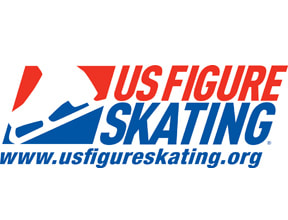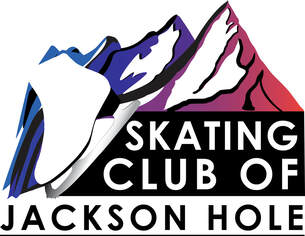Moves In the Field
MIF or Moves-in-the-Field, or "Moves" is a technical discipline, designed to help skaters improve their execution of the basic moves of skating. Edgework, turns, stroking, body control and extension are emphasized. The Moves-in-the-Field discipline is primarily a test discipline, although some competitions are running Moves events. Moves-in-the-Field has test levels matching each singles freestyle level, and it is required that all skaters testing freestyle must pass the equivalent Moves test prior to taking the corresponding test in the freestyle or pairs disciplines.
USFS has created eight moves in the field tests, one for each level of skating. These tests are designed to ensure that a skater has acquired the skills at a specific level before moving on to the next.
For the earlier tests, pre-preliminary and preliminary, no great deal of technical ability or carriage of flow is expected. The skater is expected to know the move and be able to perform it without any major mistake. As the skater progresses to higher level tests, the judges expect to see better edges, form, power and flow. At the highest levels (novice, junior, and senior), the skater is expected to give an excellent performance with strong edge control and depth, great power, extension and flow.
What this all means is that as the skater moves up in level, not only are the skills for each move harder, but the overall quality and performance is judged more critically.
WHAT IF I FAIL A TEST?
First, don't panic. You are allowed to re-take any test as many times as you need to pass. In fact the test is not marked as "failed" it is marked "re-test". The judges put comments on the form explaining what it was that was not performed as expected.
USFS has created eight moves in the field tests, one for each level of skating. These tests are designed to ensure that a skater has acquired the skills at a specific level before moving on to the next.
- Pre-Preliminary
- Preliminary
- Pre-Juvenile
- Juvenile
- Intermediate
- Novice
- Junior
- Senior
For the earlier tests, pre-preliminary and preliminary, no great deal of technical ability or carriage of flow is expected. The skater is expected to know the move and be able to perform it without any major mistake. As the skater progresses to higher level tests, the judges expect to see better edges, form, power and flow. At the highest levels (novice, junior, and senior), the skater is expected to give an excellent performance with strong edge control and depth, great power, extension and flow.
What this all means is that as the skater moves up in level, not only are the skills for each move harder, but the overall quality and performance is judged more critically.
WHAT IF I FAIL A TEST?
First, don't panic. You are allowed to re-take any test as many times as you need to pass. In fact the test is not marked as "failed" it is marked "re-test". The judges put comments on the form explaining what it was that was not performed as expected.

